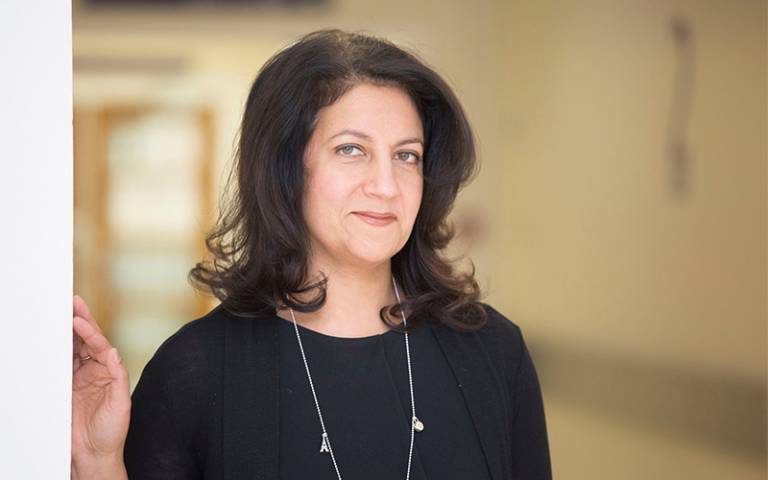Global Engagement Funds Case Study: South Asia
Professor Monica Lakhanpaul visited an NGO in Mumbai to help inform her research on nutrition among young children from marginalised communities in the UK.

8 February 2018
Professor Monica Lakhanpaul
Professor of Integrated Child Health and Head of Population, Policy and Practice, UCL Great Ormond Street Institute of Child Health
“We used the Global Engagement Funds to establish a collaborative partnership between the Mumbai-based Society for Nutrition, Education and Health Action (SNEHA) and UCL Great Ormond Street Institute of Child Health’s Population, Policy and Practice programmes.
Both are rooted in community mobilisation research and finding solutions to complex health problems using collaborative participatory approaches.
Building on a successful scoping visit to India earlier in the year led by Dame Nicola Brewer, Vice-Provost (International), I wanted to visit SNEHA again with my PhD student and Research Fellow (from the NEON-CLAHRC North Thames project) to spend time actively observing, participating in and learning from their activities to help inform our research into optimising nutrition and feeding practices for young children from marginalised communities in the UK.
The visit allowed us to see for ourselves what was happening on the front line. We learned about the challenges SNEHA face and their different techniques of engaging, drawing people out from their homes and into the community setting. We met people who we would never have been able to meet otherwise, which made for a richer dialogue.
Comparing SNEHA’s work in the urban slums of Mumbai to our work in Tower Hamlets, you realise that in many ways we are not that different. With globalisation we need to share knowledge across the world and we can learn from countries which initially may seem very different to our own.
Any partnership is only successful if people trust each other, and you develop this trust by visiting a partner more than once. The Global Engagement Funds have helped us to do that.”
 Close
Close


